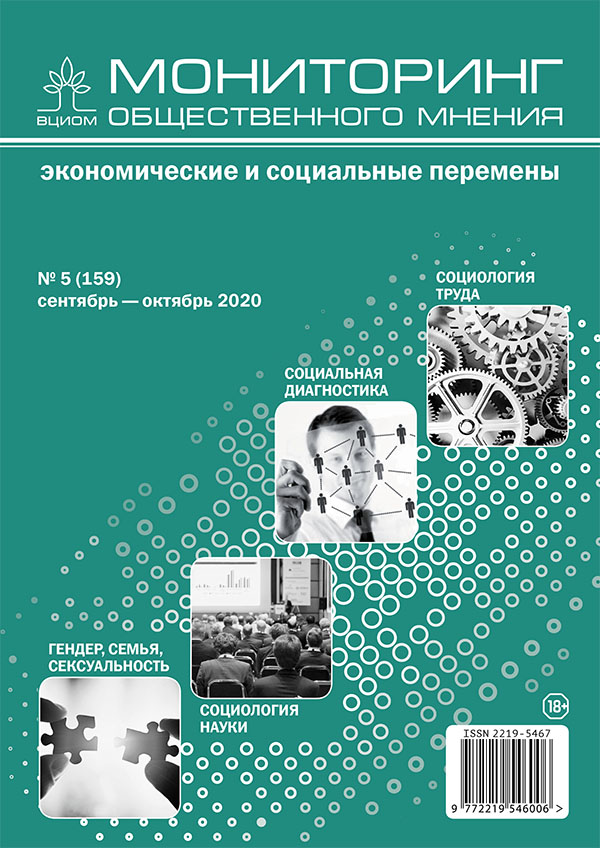Involved Fatherhood, Caring Masculinity
DOI:
https://doi.org/10.14515/monitoring.2020.5.1676Keywords:
fatherhood, involvement, recognition, care, fathering, intergenerational interviewsAbstract
Modern studies show that fatherhood and fathering practices are closely linked to the notion of masculinity and gender contracts. That implies induction of change in masculine and paternal roles due to actively changing configurations of women’s educational, labor and maternal responsibilities. Thus, the social institution of fatherhood is under the pressure of both public and private spheres. It is obvious that today fatherhood is undergoing changes as we witness the erosion of the patriarchal family system, appearance of new gender roles, new father’s and mother’s identities; that is why it is important to study the communicative structure of family/partnership. To what extent do fathers available to their children? Are they eager to interact with them? Are they ready to take responsibility for their children? Based on the social constructivism theory the author discusses the Axel Honneth's theory of recognition, and Karla Elliott's caring masculinities. As an adequate conceptual foundation the author builds a complementary gender construction enabling to relativize hegemonic normative form of masculinity at the expense of the legitimating care-related discourse which becomes gender-neutral and unleashes paternal practices in keeping with active father involvement.
The focus of the work is succession and differences of parental practices across three generations. The study is based on an analysis of semi-structured interviews with 200 families as case studies representing different viewpoints on the problems of fatherhood, motherhood and socialization. The study places an emphasis on fatherhood in family communication paying attention to motherhood as a background. The author indentifies different categories of paternal practices which help to trace generational differences: daily activities related to upbringing, upbringing–related norms, assessments and modes of justification related to upbringing models, and participation in upbringing. The author concludes that fatherhood “returns” to families enriched with care-related practices transforming masculinity; it is valorized as an independent role with a content validity.
Acknowledgments. The article is part of the ‘Reconstruction of Father’s Role: Generational Dynamics, Father’s Competencies and Practices’ project supported by HSE Academic Fund (individual grant no. 15-01-0126).
Downloads
Published
How to Cite
Issue
Section
License
Copyright (c) 2020 Monitoring of Public Opinion: Economic and Social Changes Journal (Public Opinion Monitoring) ISSN 2219-5467

This work is licensed under a Creative Commons Attribution-NonCommercial-ShareAlike 4.0 International License.






